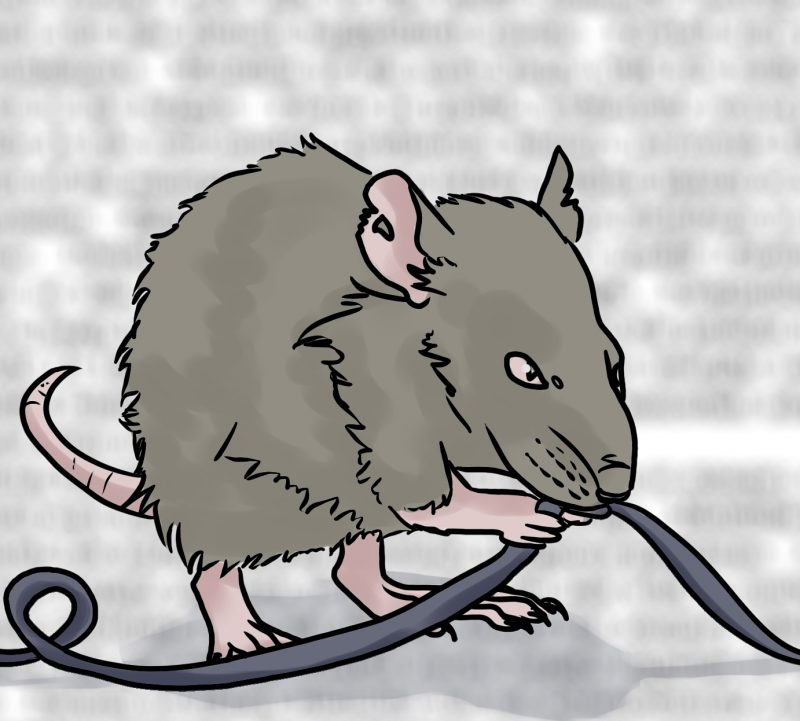Since the Federal Communications Committee (FCC) repealed net neutrality last November, U.S. citizens and business analysts have speculated about how Internet Service Providers (ISPs) might react to the policy reversal. Though none of these companies have yet enacted dramatic changes to their policies, their behavior could drastically alter consumers’ access to the internet — changes that would affect university connections, too.
The FCC instituted net neutrality in 2015 to prevent net traffic discrimination on the part of ISPs. With the repeal of net neutrality, companies like Verizon, Comcast and Spectrum have the capability to speed up or slow down web traffic to and from certain companies’ services.
This means that ISPs could pick and choose to throttle the traffic their wires carry from companies like Netflix, Spotify and Hulu based on, say, preferred business relationships, or whoever pays them the most.
“For the most part, the issue is more of a concern that a large network provider such as AT&T or Comcast, might charge a large content provider such as Netflix or Google to move their traffic,” wrote Jim Bradley, the university’s chief information officer in an email interview. “From the network provider’s point of view, Netflix is selling a service but not including the cost of the infrastructure that allows the data to move across Comcast’s network.”
Some speculate that with the repeal of net neutrality, equal access on the internet will disappear. They say that ISPs will start discriminating against traffic from sites like Netflix, forcing consumers to use the companies’ own products — or products that their parent companies own — unless they pay extra fees.
“One possibility is that ISPs could decide that the traffic coming from Trinity is not high enough priority, so if we had faculty or students working on major research projects for instance that require extensive data it would possible for an ISP to say, ‘We’re not making enough money off of you, so let’s go ahead and move you over to the slow lane, or make you pay a lot more,’ ” said Chris Nolan, director of Coates Library.
Though providers aren’t yet charging such punitive fees, some have offered incentives and data waivers to entice customers.
“It is interesting to note that since the 2015 rule changes were undone, some of the major cellular providers now are offering free access to some of the content providers,” Bradley wrote. “For example, T-Mobile now includes Netflix at no charge, AT&T provides free access to its own DirecTV Now streaming service — which predates the change — and Sprint is offering Hulu for free.”
Defenders of the FCC’s decision claim that net neutrality had harmful effects on investment in web infrastructure, preventing a quicker advance toward widespread 5G connections. They say that without net neutrality, ISPs will have the resources to improve internet access for all consumers.
It is worth noting that the majority of ISPs’ customers use some sort of streaming site like HBO Go or Hulu, and if they were to hinder streaming sites’ accessibility there would be major consumer backlash, which could harm ISPs more than benefiting them.
In network administration parlance, Trinity University is known as an autonomous system, a collection of web routers that determines where web traffic from campus goes — essentially, Trinity is its own ISP. But the university must still communicate and work through other ISPs and their infrastructure in order to have full access to the internet, making the university subject to ISPs’ policies.
Most of Trinity’s internet connection is provided by Spectrum, which is owned by Charter Communications, the second-largest cable company in the United States. In reaction to growing concern about the repeal, Charter stated in December that it supports a free internet, won’t throttle or block legal content and has no paid prioritization plans as of now.
But Charter has been growing immensely since its purchase of Time Warner Cable in 2016, growing its consumer base and services offered, and its plans may change in the future. Until then, the administration remains optimistic.
“I would say that right now, it is not likely that we would see any impact for our students and faculty,” Bradley wrote.
with reporting by Daniel Conrad







